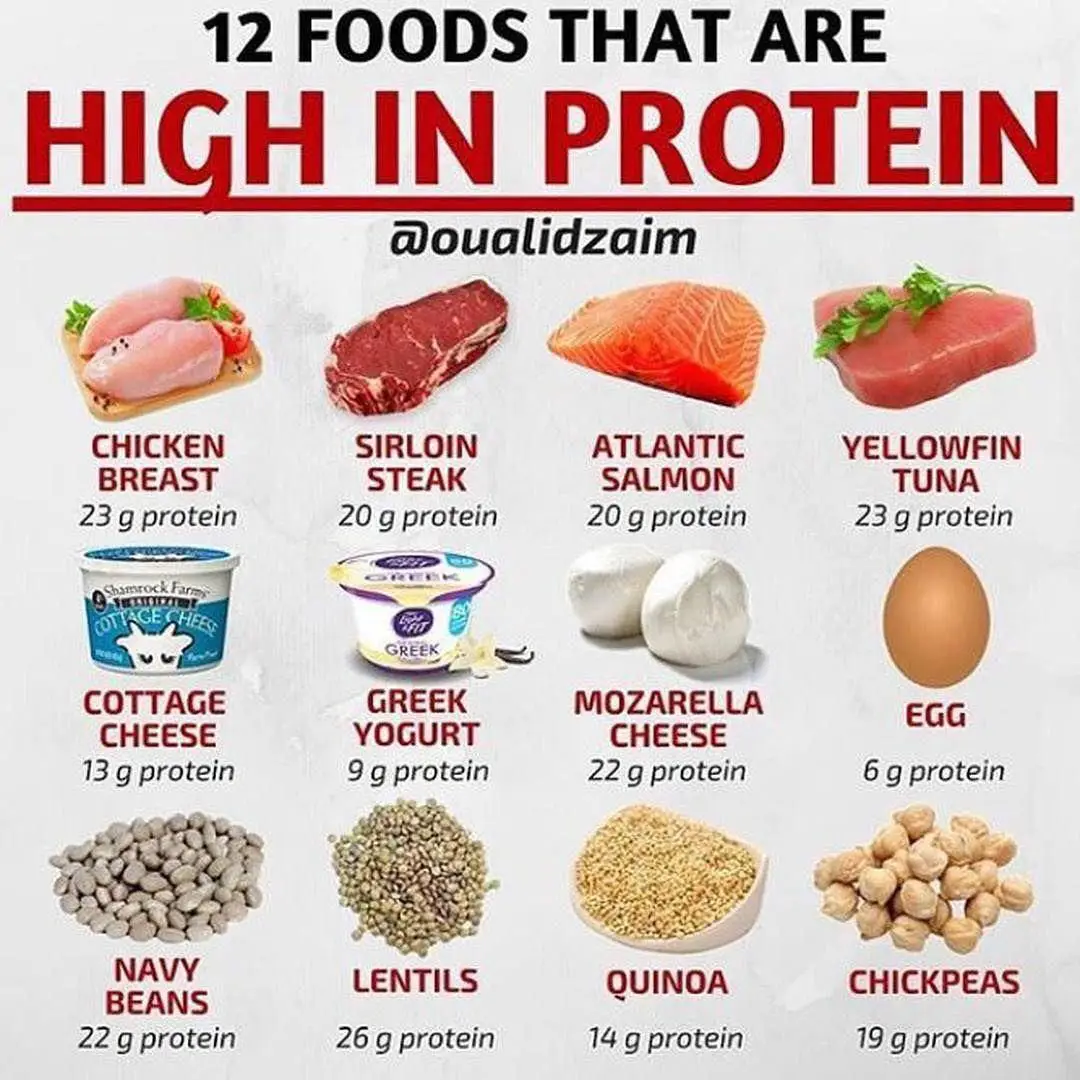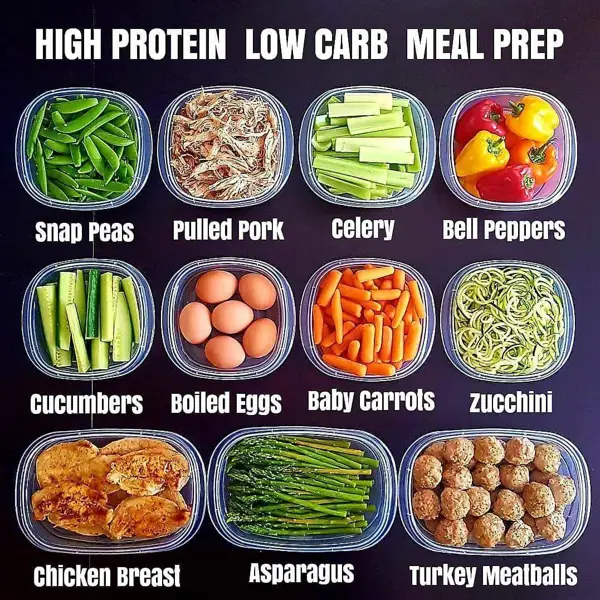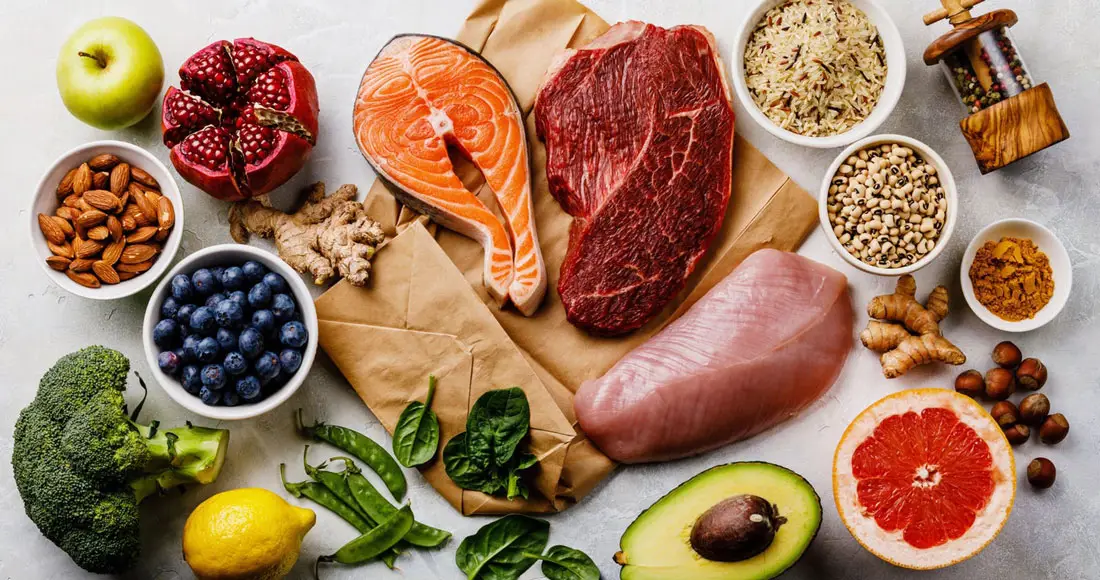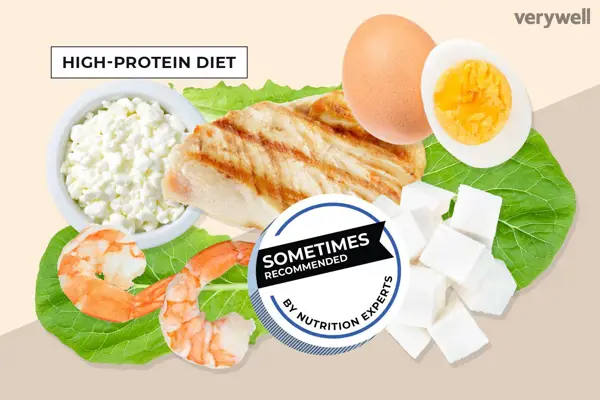Table of Contents
- Introduction
- Benefits of Protein for Weight Loss
- Protein Sources for a Balanced Diet
- Recommended Daily Protein Intake
- Debunking Common Protein Myths
- Sample High-Protein Meal Plans
- Exercise Tips to Complement Protein Consumption
Introduction
Welcome to our comprehensive guide on how incorporating more protein into your diet can contribute to weight loss efforts. By understanding the role of protein in weight management, you can make informed dietary choices and optimize your overall health and fitness.
Benefits of Protein for Weight Loss
In this section, we delve into the various benefits protein offers in supporting weight loss goals. We discuss how protein boosts metabolism, reduces appetite, and preserves lean muscle mass during calorie deficits.
Eating more protein can greatly assist in achieving weight loss goals. Here are some key benefits:
1. Increased Metabolism
Protein has a high thermic effect, which means that your body burns more calories to digest it compared to carbohydrates or fats. This boost in metabolism can contribute to weight loss as it increases the number of calories you burn throughout the day.
2. Increased Feeling of Fullness
Protein is highly satiating and can help reduce cravings and the overall desire to overeat. By incorporating protein-rich foods into your meals, you are more likely to feel satisfied for longer periods, ultimately reducing the urge to snack or consume unnecessary calories.
3. Preserves Lean Muscle Mass
During weight loss, it is essential to maintain muscle mass. Protein aids in the preservation of muscle tissue, which can help prevent muscle loss while targeting fat stores. By consuming adequate protein, you can ensure your body maintains its lean muscle mass while losing weight.
4. Supports Fat Burning
Protein helps the body in breaking down stored fat to be used as an energy source. It promotes fat burning and assists in the development of lean muscle, ultimately aiding in the weight loss process.
5. Regulates Blood Sugar Levels
Consuming protein with meals can help stabilize blood sugar levels by slowing down the digestion and absorption of carbohydrates. This prevents sudden spikes in blood sugar, leading to more balanced energy levels and reduced cravings.
In conclusion, adding more protein to your diet can provide several benefits for weight loss, including an increased metabolism, decreased hunger, muscle preservation, enhanced fat burning, and better blood sugar regulation. So, if you're aiming to shed some pounds, make sure to prioritize protein-rich foods!

Protein Sources for a Balanced Diet
Learn about a variety of protein-rich foods suitable for individuals with different dietary preferences, including both animal and plant-based sources. We provide an extensive list to help you diversify your protein intake.
Will Eating More Protein Help with Weight Loss?
Protein is an essential macronutrient that plays a crucial role in our overall health and wellbeing. When it comes to weight loss, including an adequate amount of protein in your diet can be highly beneficial.
Eating more protein can aid weight loss in several ways:
- Increased Metabolism: Protein has a higher thermic effect compared to other macronutrients like carbohydrates and fats. This means that your body burns more calories while digesting and metabolizing protein, thus increasing your overall metabolic rate.
- Reduced Appetite and Increased Fullness: Protein has been found to be more satiating than carbohydrates or fats. By consuming adequate protein, you are likely to feel fuller for longer periods, reducing your overall calorie intake and promoting weight loss.
- Muscle Preservation: Protein is crucial for muscle growth and repair. When trying to lose weight, consuming enough protein can help preserve lean muscle mass and prevent muscle loss, which is important for maintaining a healthy metabolism.
- Increased Fat Burning: Consuming more protein can enhance fat burning while sparing muscle tissue. This can be particularly beneficial during weight loss efforts, as it helps promote the loss of body fat while preserving muscle mass.
When it comes to choosing protein sources for a balanced diet, there are numerous options to consider:
- Lean meats such as chicken, turkey, and fish.
- Plant-based proteins like legumes, lentils, quinoa, and tofu.
- Dairy products such as Greek yogurt, cottage cheese, and low-fat milk.
- Eggs, which are a versatile and nutritious protein source.
- Nuts and seeds like almonds, walnuts, chia seeds, and hemp seeds.
Remember to include a variety of protein sources in your diet to ensure you get all the essential amino acids and other important nutrients for optimal health.
While increasing protein intake can support weight loss, it's important to remember that a balanced diet consists of all the essential macronutrients, as well as vitamins, minerals, and fiber. Be sure to consult a healthcare professional or a registered dietitian for personalized advice based on your individual needs and goals.

Recommended Daily Protein Intake
In this section, we outline the recommended daily protein intake for individuals looking to lose weight. We explain how protein requirements can vary based on factors such as activity level, age, and gender, and offer guidance on calculating your optimal protein intake.
The recommended daily protein intake is an essential consideration for individuals looking to maintain a healthy weight and promote weight loss. Protein is a macronutrient that plays a vital role in building and repairing tissues, supporting a healthy metabolism, and promoting satiety.
While consuming a high-protein diet can contribute to weight loss, it should be part of a comprehensive and balanced approach to achieve sustainable results. Incorporating protein-rich foods into your meals can help control cravings, reduce hunger levels, and increase the feeling of fullness, thus leading to a reduced calorie intake overall.
Protein-rich foods include lean meats, poultry, fish, dairy products, legumes, nuts, and seeds. It is recommended to spread protein intake evenly throughout the day to optimize muscle synthesis and enhance metabolism.
However, it is important to note that solely increasing protein intake may not guarantee weight loss. A balanced diet that includes a variety of nutrient-dense foods and regular physical activity are also crucial for achieving and maintaining a healthy weight.
In conclusion, consuming an adequate amount of protein as part of a well-balanced diet can contribute to weight loss by promoting satiety, controlling hunger, and supporting a healthy metabolism. However, it is important to consult with a healthcare professional or registered dietitian for personalized advice based on your specific dietary needs and goals.

Debunking Common Protein Myths
We address and debunk prevalent misconceptions about protein consumption and its relation to weight loss. By dispelling these myths, we aim to provide accurate information and help you make well-informed decisions about your dietary choices.
Sample High-Protein Meal Plans
Discover sample meal plans designed to incorporate an increased protein intake into your daily routine. These plans offer inspiration and show you how to achieve a balanced, protein-rich diet that aids weight loss.
Exercise Tips to Complement Protein Consumption
In this section, we discuss the importance of exercise in conjunction with a protein-rich diet for weight loss. We provide valuable tips on selecting appropriate exercises and explain how they work synergistically with protein to maximize your results.
Key Takeaways
- Consuming more protein can boost metabolism and aid in weight loss.
- Protein helps reduce appetite and keeps you feeling fuller for longer.
- Preserving lean muscle mass is essential during weight loss, and protein assists in achieving this goal.
- Animal and plant-based foods are great sources of protein, providing options for different dietary preferences.
- The recommended daily protein intake varies based on factors such as activity level, age, and gender.
- Debunking common protein myths can help you make better dietary choices.
- Sample high-protein meal plans can guide you in incorporating protein-rich foods into your daily diet.
- Exercising in combination with a protein-rich diet enhances weight loss outcomes.
Frequently Asked Questions
Q: Will consuming more protein help with weight loss?
A: Yes, increasing protein intake can assist in weight loss by boosting metabolism and reducing appetite.
Q: How can I incorporate more protein into my diet?
A: There are numerous protein-rich sources, including lean meats, legumes, dairy products, tofu, and quinoa. Explore the section on protein sources for a more extensive list.
Q: What happens if I consume excessive protein?
A: Consuming excess protein may lead to an imbalance in your macronutrient intake. It is important to find the right balance and consult a healthcare professional if needed.
Q: Can protein consumption alone help me lose weight without exercise?
A: While protein can aid in weight loss, combining it with regular exercise yields better and more sustainable results.
Q: Is a high-protein diet suitable for everyone?
A: A high-protein diet may not be suitable for individuals with specific medical conditions. It is best to consult a healthcare professional or registered dietitian before making any significant dietary changes.



Recent Comments